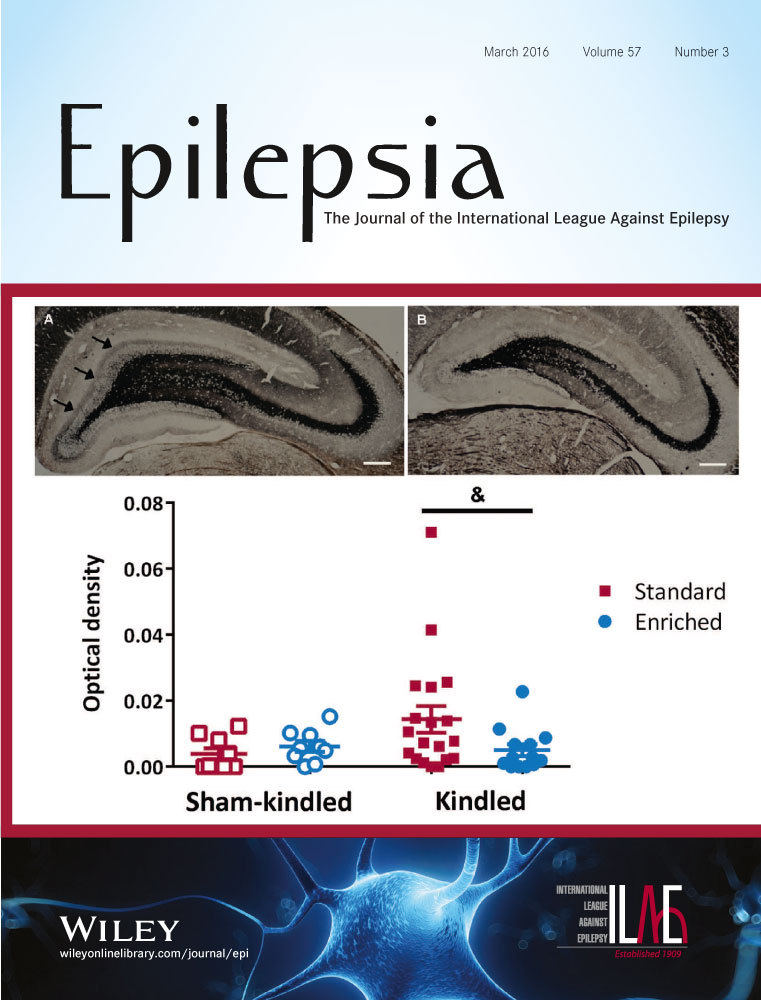PCDH19-related epilepsy in two mosaic male patients
Summary
PCDH19 gene mutations have been recently associated with an epileptic syndrome characterized by focal and generalized seizures. The PCDH19 gene (Xq22.1) has an unusual X-linked inheritance with a selective involvement for female subjects. A cellular interference mechanism has been hypothesized and male patients can manifest epilepsy only in the case of a mosaicism. So far about 100 female patients, and only one symptomatic male have been described. Using targeted next generation sequencing (NGS) approach we found a PCDH19 point mutation in two male patients with a clinical picture suggestive of PCDH19-related epilepsy. The system allowed us to verify that the two c.1352 C>T; p.(Pro451Leu) and c.918C>G; p.(Tyr306*) variants occurred in mosaic status. Mutations were confirmed by Sanger sequencing and quantified by real-time polymerase chain reaction (PCR). Up to now, the traditional molecular screening for PCDH19-related epilepsy has been targeted to all females with early onset epilepsy with or without cognitive impairment. Male patients were generally excluded. We describe for the first time two mosaic PCDH19 point mutations in two male patients with a clinical picture suggestive of PCDH19-related epilepsy. This finding opens new opportunities for the molecular diagnoses in patients with a peculiar type of epilepsy that remains undiagnosed in male patients.




